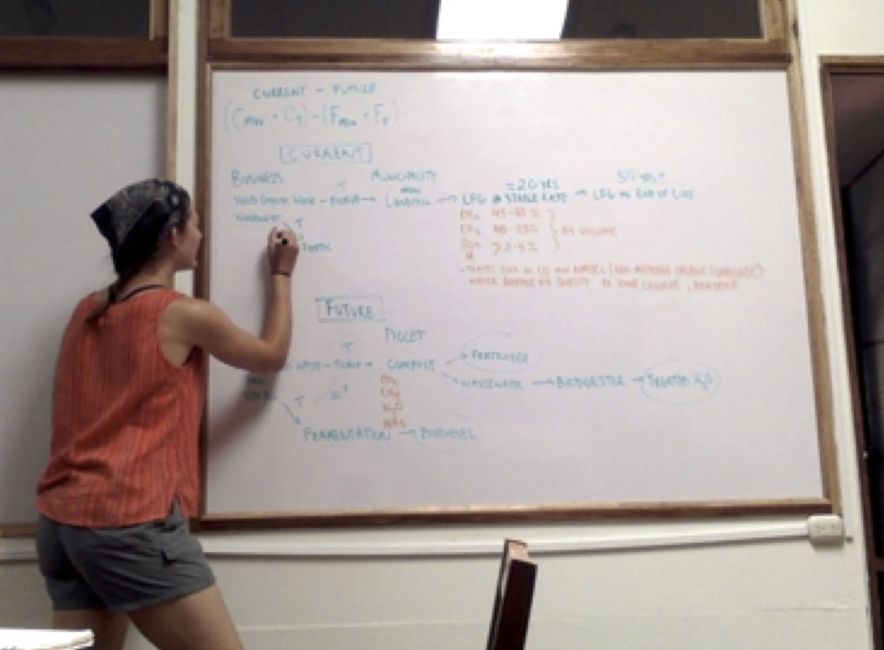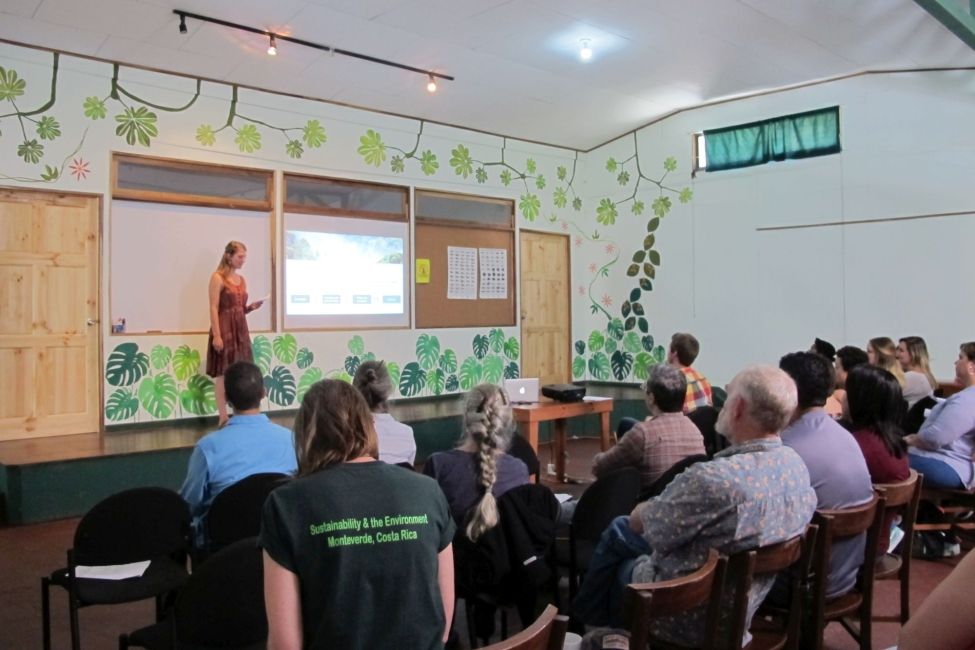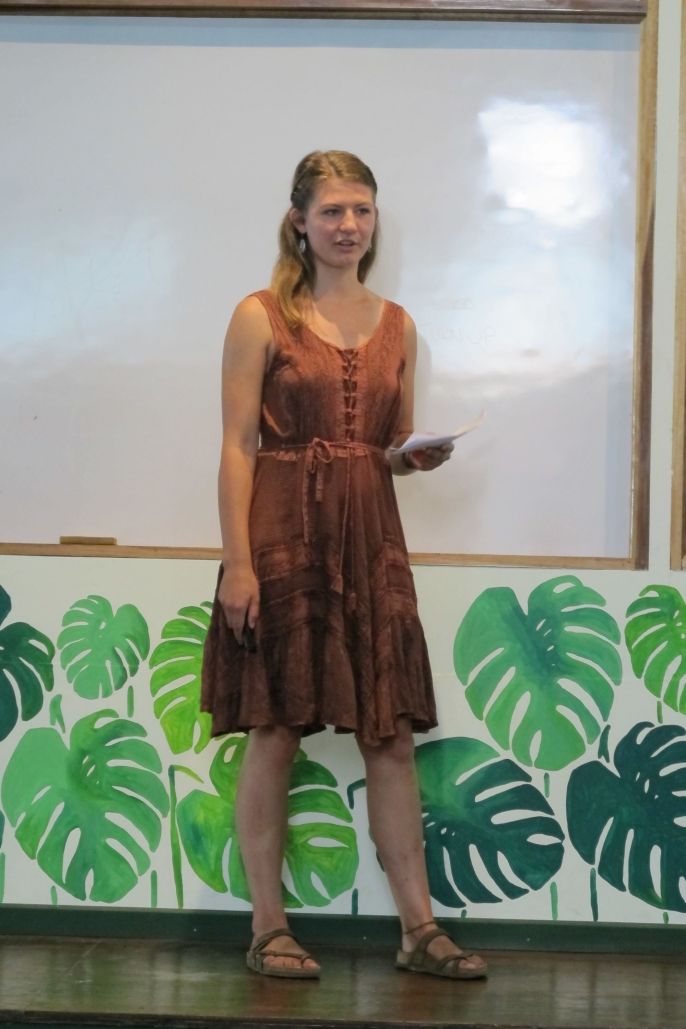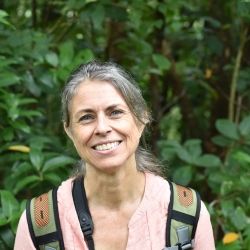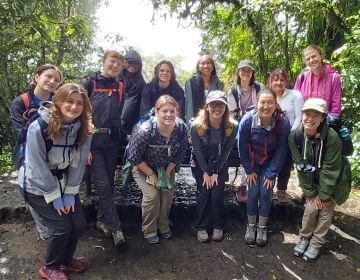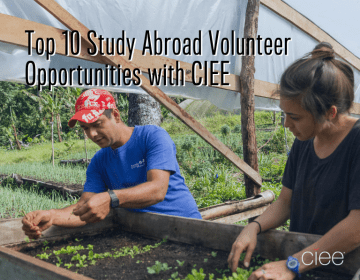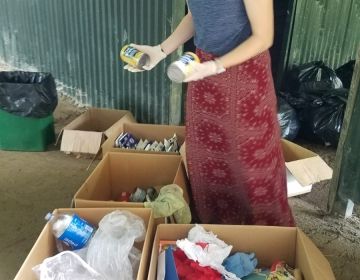"Waste is a Terrible Thing to Waste", by Serena Dudas (University of Redlands): Sustainability and the Environment Internship
Through CIEE, I had the opportunity to work as an intern for Vision to Reality Consultants (VTR) with Justin Welch. The focus of my internship is to provide supporting evidence for organic waste management through aerobic composting which can be used to create scenarios to scale up our current composting system to the municipal level in Monteverde, Costa Rica. Organic waste such as food scraps, waste vegetable oil, and waste water have the potential to create valuable commodities such as fertile compost, biodiesel and treated irrigation water. Yet, approximately 464 tons of food waste is sent to the landfill each year in Monteverde alone! (COMIRES) We know that commodity items can be created from this waste, but another question loomed; will an adjustment in sending organic food waste from the sanitary landfill to an aerobic compost system produce greenhouse gas emissions or remissions for Costa Rica with account of decomposition, transportation, and other factors?
I was personally interested in this internship because I enjoy the challenge of solving problems with innovative thinking and geo-spatial applications. With climate change ever looming, changes need to be made in terms of how we process our production, consumption, and development. Here was an opportunity, one of the first of its kind for a developing country, needing a passionate and dedicated student who could sort through dozens of scientific publications to pull out applicable data. This internship challenged my critical thinking and spatial thinking skills; I needed to create waste management scenarios specifically tailored for Monteverde and use greenhouse gas emission factors from scientific studies to make estimations of possible emissions.
Through this internship I compiled a small database with annotations on the basic science behind greenhouse gas emissions sources from decomposing organic matter, provided emission estimates for VTR’s composting system with comparison to standard sanitary landfill emissions, constructed and implemented a survey, and processed these materials into a presentation for a general audience. These responsibilities developed my vocational skills in communication, spatial thinking, research, and data analysis. The data for the survey of businesses in Monteverde was manually collected in order to learn about demand for a centralized waste collection system and current emissions within the current system. The improvement in my Spanish conversational skills and social confidence is very noticeable!
The products of my time here can be used to write grant proposals, to build scenarios, and to share the mission of Vision to Reality’s waste management solutions with a wider audience. I am very proud to say that I contributed my highest standard of work to this position, and I am looking forward to bringing the skillset I have acquired to future positions regarding sustainable solutions in the environmental sector.
ESTIMATING THE EMISSIONS OFFSET
(CMSW + CT) – (FMSW + FT) = GHG Emissions
CMSW = Current Emissions from Municipal Solid Waste (MSW) System
CT = Current Emissions from Transportation
FMSW = Future Emissions from MSW System
FT = Future Emissions from Transportation
CO2-E = carbon dioxide equivalents
= (94,766 ft3 CO2-E/ton/20yrs + 15,303 ft3 CO2/yr) – (13,809 ft3 CO2-E/ton/20yrs + 1,306 ft3 CO2/yr)
= 94,954 ft3 CO2-E/yr
Related Posts
Happy Earth Day: Today and Every Day
Happy Earth Day! Every April 22, this global event comes around to remind us how precious our planet is, what sustainable efforts we can make to protect Earth, and that... keep reading
Top 10 Study Abroad Volunteer Opportunities with CIEE
Have you ever wondered if you could volunteer abroad? Perhaps you're looking into study abroad programs that provide international volunteer opportunities. If you’re itching to study abroad and truly make... keep reading
Recycling Internship with ADI San Luis
Written by Maya Peske (Cornell College), Internship in Sustainability and the Environment The road from San Luis up to Monteverde is well known by all of the people in the... keep reading
